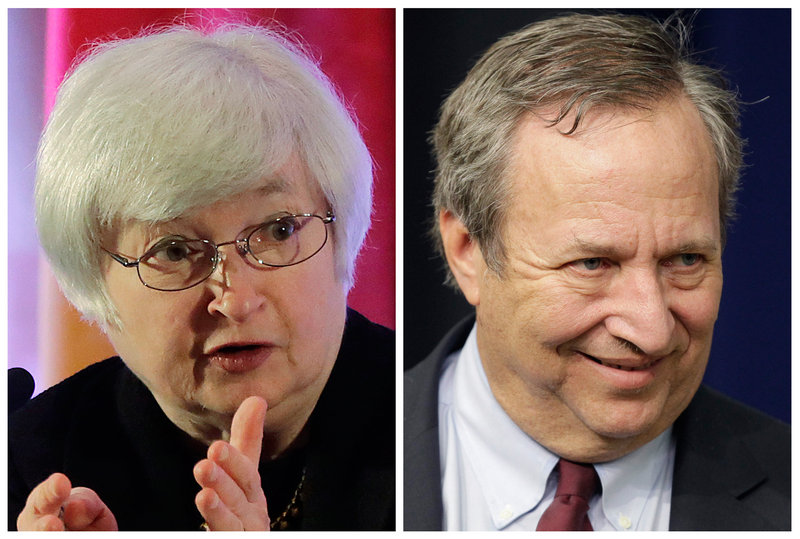WASHINGTON – To many investors and economists, the prospects for a new Federal Reserve chief became clearer — and brighter — after former Treasury Secretary Lawrence Summers dropped out of contention for the post.
The same can’t be said for the lackluster U.S. economy.
Even if economist Janet Yellen, now the Fed’s vice chair, gets the nod as the next leader of the central bank, she will inherit a job that is getting only more difficult.
With productivity gains weak, the housing market showing signs of cooling and another nasty Washington fight looming over the debt limit and the budget, Yellen and her colleagues are looking at a very uncertain economy during their two-day policy-setting meeting, which ends Wednesday.
Since the recovery from the Great Recession began more than four years ago, the central bank has consistently overestimated the pace of economic growth in the nation. And the economy is again underperforming the Fed’s projections for this year.
“It’s not an easy time, and it’s not going to get any easier” for the next Fed chair, said Diane Swonk, chief economist at Mesirow Financial. “I wouldn’t wish it on my biggest enemy.”
The persistently weak economy has prompted the Fed under Chairman Ben Bernanke to inject an unprecedented amount of cash into the financial system. Policymakers on Wednesday are expected to announce just a small reduction in the central bank’s $85-billion-a-month bond-buying stimulus program.
Fed officials are likely to try to offset what some may perceive as monetary tightening by signaling that it will keep short-term interest rates near zero even longer than mid-2015, the current projection.
Still, any cut in the Fed’s stimulus efforts is a bet that the recovery will strengthen in the coming quarters. But the Fed’s own projections cast doubt on that bet. The economy grew at a disappointing annual rate of less than 2 percent in the first half, and the current quarter isn’t looking any better — making it likely that the Fed on Wednesday will revise down its previous forecast of 2.3-2.6 percent expansion for this year.
Such moderate growth doesn’t bode well for an acceleration in job growth, which has been modest.
Many analysts believe Yellen is now in the driver’s seat for the nomination. But senior administration officials said Obama was upset about the unprecedented public lobbying by Yellen supporters that helped trigger Summers’ decision, and he could turn to a third candidate.
In speeches, Yellen, a former president of the Federal Reserve Bank of San Francisco, has expressed strong concerns about the weak labor market.
Economists point out that whoever gets the top Fed job will face tough challenges, especially if the economy doesn’t pick up.
One difficulty is that the Fed has to engineer the tapering of its bond-buying and the eventual disposal of about $2 trillion in U.S. Treasury bonds it has purchased. That tapering also could be hampered by the economy’s failure to live up to the Fed’s expectations.
Copy the Story Link
Send questions/comments to the editors.



Success. Please wait for the page to reload. If the page does not reload within 5 seconds, please refresh the page.
Enter your email and password to access comments.
Hi, to comment on stories you must . This profile is in addition to your subscription and website login.
Already have a commenting profile? .
Invalid username/password.
Please check your email to confirm and complete your registration.
Only subscribers are eligible to post comments. Please subscribe or login first for digital access. Here’s why.
Use the form below to reset your password. When you've submitted your account email, we will send an email with a reset code.